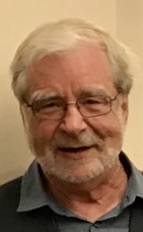The Public and the Social
- Marvin T. Brown

- May 4, 2020
- 2 min read
Updated: Jan 20

The epidemic continues to challenge our thinking and feelings about our understanding of ourselves. Sickness and death, of course, are always present; but they are not always public. They are not always so clearly defined as issues of public health.
One can see without question social dimensions of the epidemic—its impact on the young and old, the responses of men and women, its danger for those who work at home and those who work in meat processing plants, hospitals, and eldercare homes. Public health certainly considers these social differences in its responses to the epidemic, and may treat different social groups differently, but none of them should be excluded from the public realm.
What has become thought-provoking is the meaning of this realm: the public. We have public schools, public parks, public beaches, public libraries, public housing, public works, public leaders, and of course, public health, Would not it have been wise to call social security “public security”? So, how does this realm fit in our interpretative frameworks?
One classical framework has three elements: the economy, government, and civil society. The public—funded and managed by local, regional, or national taxpayers and managed by elected or appointed public servants—clearly belongs to government, or what I would call civic government. (Our government has both civic and military functions, and today at least, public health belongs to the civic.) Civil society-- usually defined as non-governmental and non-profit—and the market—the world of exchanges—both belong to various social worlds. (Some people in civil society deny their social identity, but that doesn’t make it disappear).
Social differences are recognized, connected and mediated in the civic. In this realm, we are equal in terms of human dignity, and different in terms of social position and relations. As I see it, these differences can be generally understood as differences between those who are vulnerable and need protection and those who have resources to provide protection. A good example of this is the civilian review board, where civilians voice their right for public safety and citizens make appropriate responses.
Public health programs could be understood as implementing “public security” by using citizens’ resources to protect vulnerable civilians. Any one of us could be a civilian—that’s the nature of epidemics—which means that we could then call upon citizens to protect us, and thereby, of course, also protect them.
As the epidemic has continued, social differences have become exaggerated and aggravated. I see the protestors at State Capitals as continuing a tradition of the “lost cause” that confederates and Christian ministers developed after the Civil War. They took their defeat as a sign of their superior moral status to the Federal government. The resentment underlying this perspective has been enflamed by Trump’s rhetoric. While they may take up airtime, we should not let them divert our attention from securing public health and security for all.

Comments